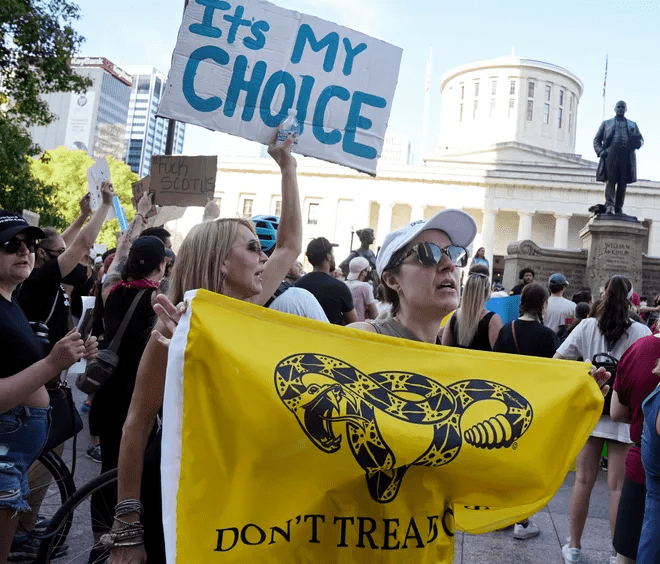Americans’ sentiments about abortion are complicated and sometimes contradictory, a complexity many public opinion polls on the highly charged topic fail to capture.
With both sides loudly magnifying survey results to suit their emotionally charged talking points, nuances are often sacrificed for the sake of political expediency. That means voters and policymakers are often denied a true picture of where the public stands in the wake of last month’s U.S. Supreme Court ruling that abortion is not a constitutional right, experts say.
“When most polls are used to justify support or opposition to abortion, they do not accurately reflect the true state of public opinion about abortion,” said professor Andrew Smith, who formerly conducted the Ohio Poll and now is director of the University of New Hampshire’s Survey Center.
That’s not to say that years of accumulated polls haven’t established key points of consensus:
• Most in the U.S. don’t want to end all rights to have an abortion.
• At the same time, a majority wants some restrictions on the controversial procedure.
The bottom line of most Americans’ stance on abortion: “It depends.”
“The American people think there are good reasons for having abortions … and generally less-good reasons for which they don’t support abortions,” Smith said.
‘Views on abortion are intensely personal, and often paradoxical’
In 2020, five sociologists at the University of Notre Dame undertook what was billed as the largest known, in-depth interview study of “everyday” Americans’ attitudes toward abortion. Instead of short phone polls or online surveys, they completed 217 one-on-one interviews, averaging 75 minutes apiece.
“Abortion attitudes are more complex than survey statistics suggest,” the researchers concluded. “Many interviewees gave us an initial answer to a survey-style question before disclosing that that’s not really how they feel. Surveys miss the ways that Americans offer disclaimers and caveats, contradict themselves, hedge their responses, change their minds, and think through things in real time.”
Others have come up with similar findings.
“In contrast to the claims of activists, and to divergent Democratic and Republican Party platforms, the ethical status of abortion is not a binary one for a great many Americans,” said a July 2021 study of questions used in the General Social Survey, performed for the past 50 years by the independent research organization NORC at the University of Chicago.
Similarly, Politifact found in May 2022 after examining numerous polls that “public opinion data on abortion is murkier and more contradictory than either supporters or opponents of abortion rights would like to admit. Views on abortion are intensely personal, and often paradoxical.”
Yes to both abortion rights and restrictions on abortion rights
The “it depends” attitude toward abortion showed up in the NORC/University of Chicago study: “When thinking about the morality or legality of a woman’s decision to have an abortion, Americans take into account the differing circumstances in which she does so, and position themselves in the middle ground.”
How the complexities of those “differing circumstances” come into play are displayed in a Harvard-Harris Poll shortly after the high court’s 6-3 decision. While 55% opposed the ruling that wiped out a constitutional right to an abortion, 37% still wanted their state to limit abortions to cases of rape or incest. Another 12% wanted them barred beyond the sixth week of pregnancy.



































